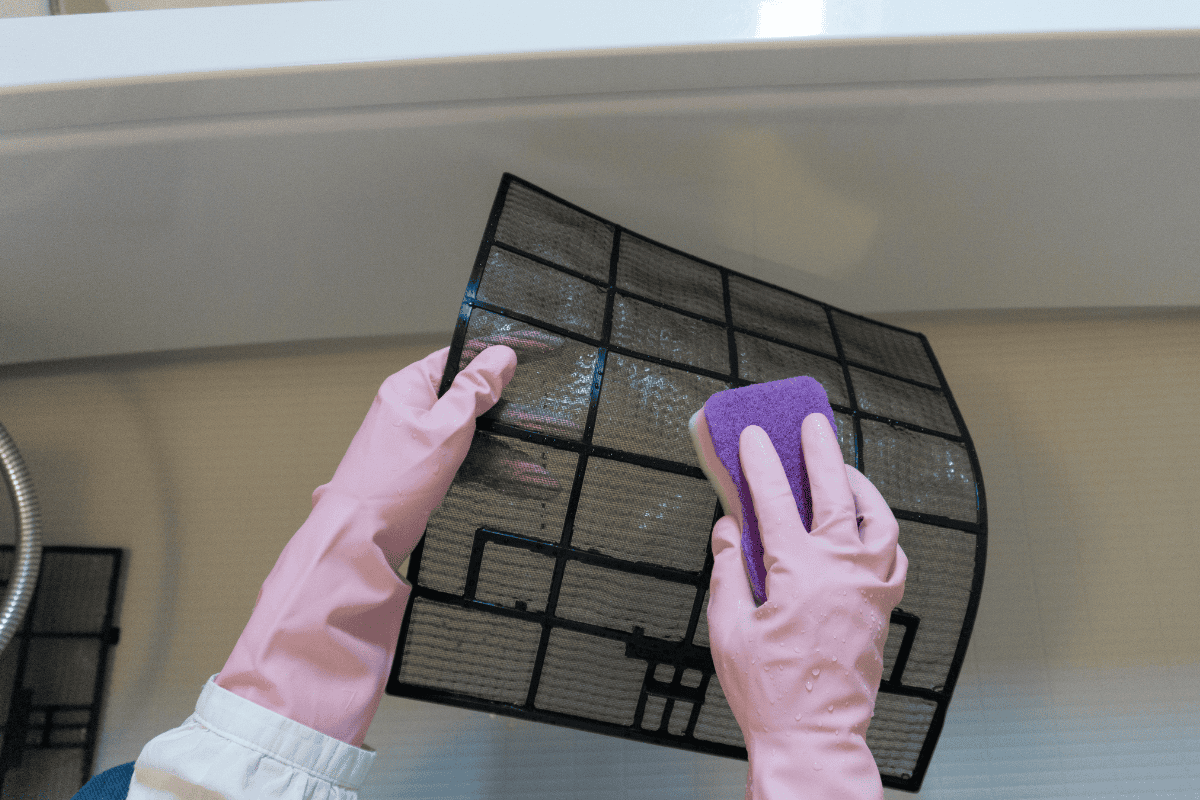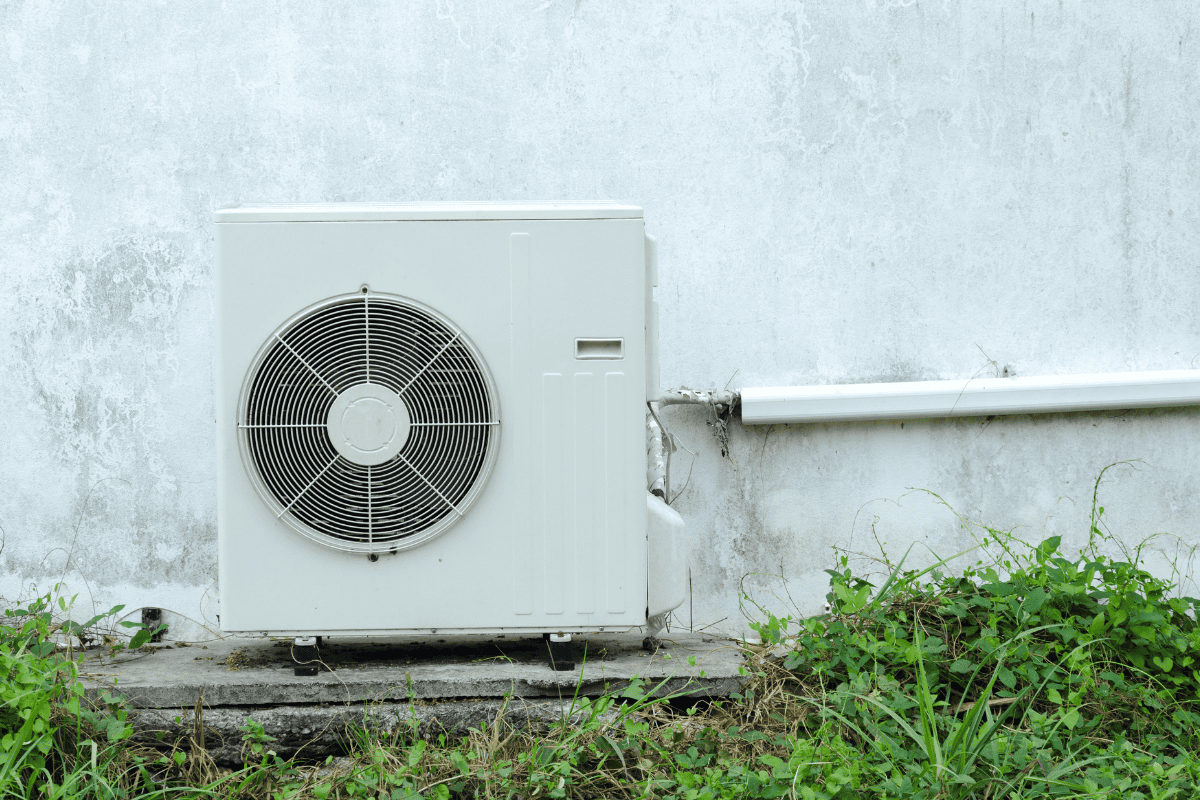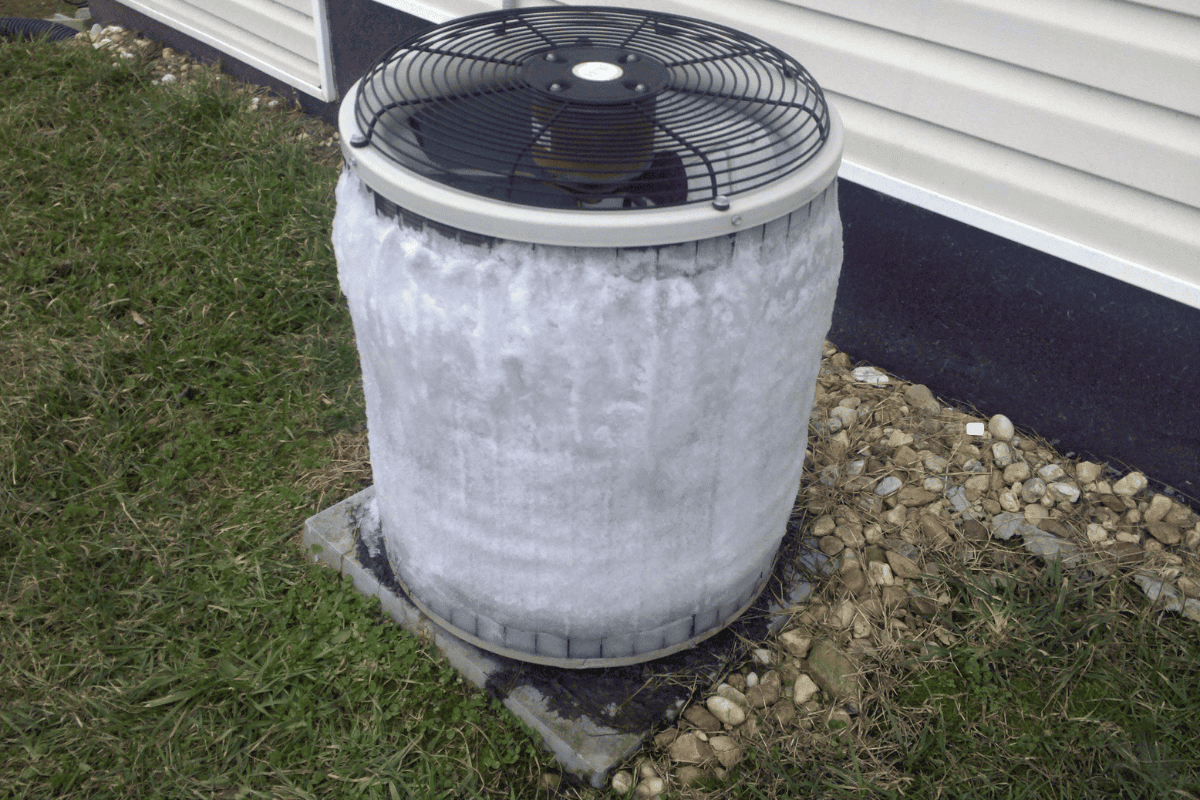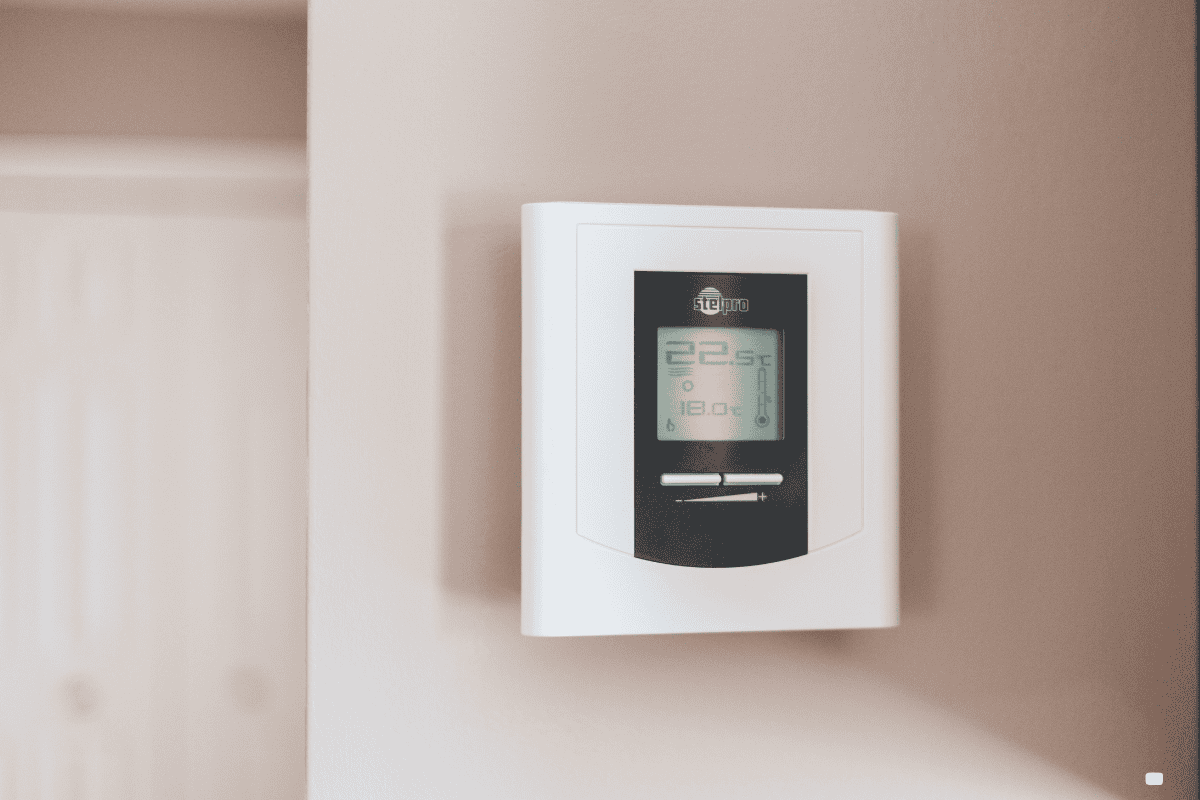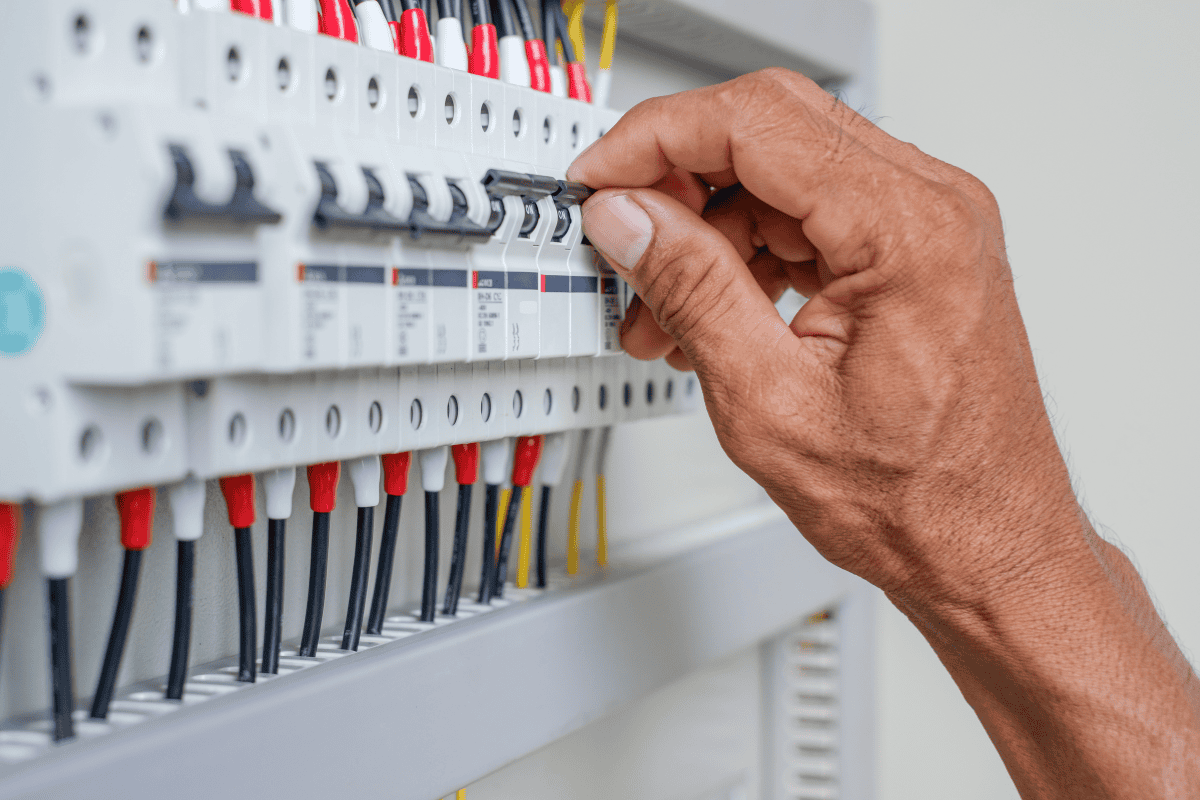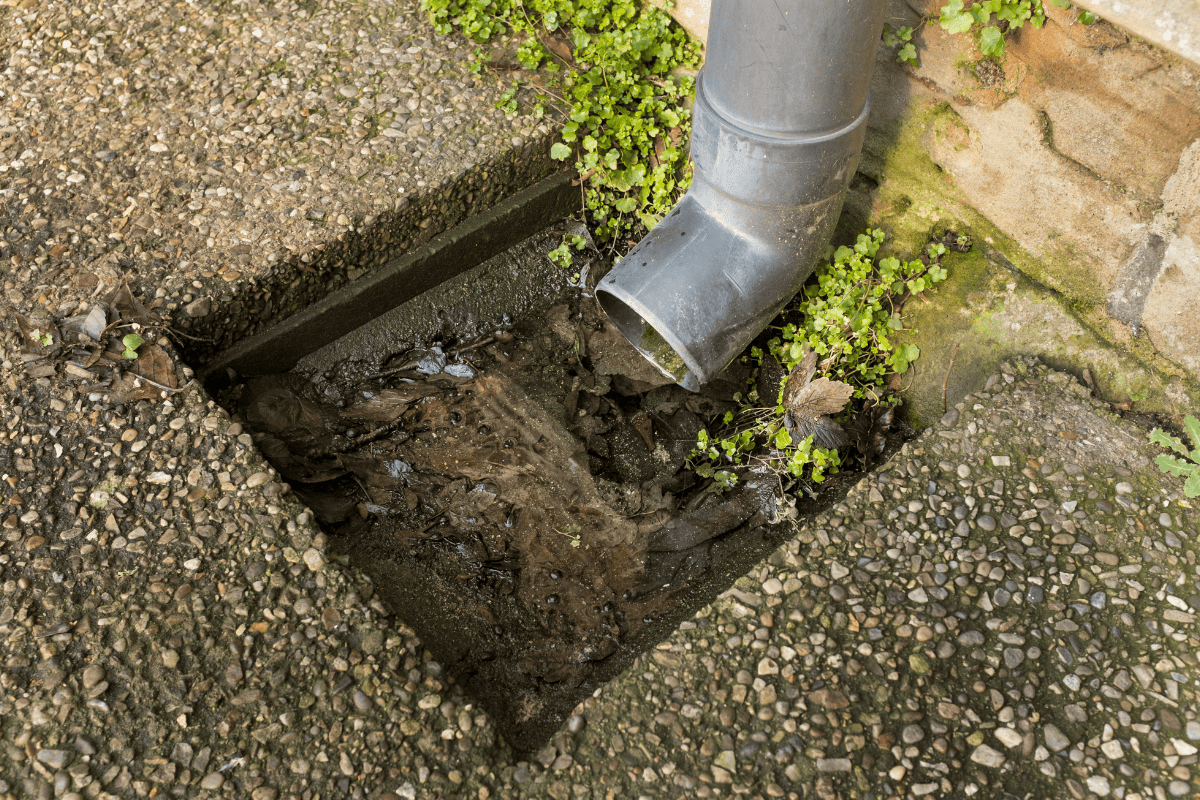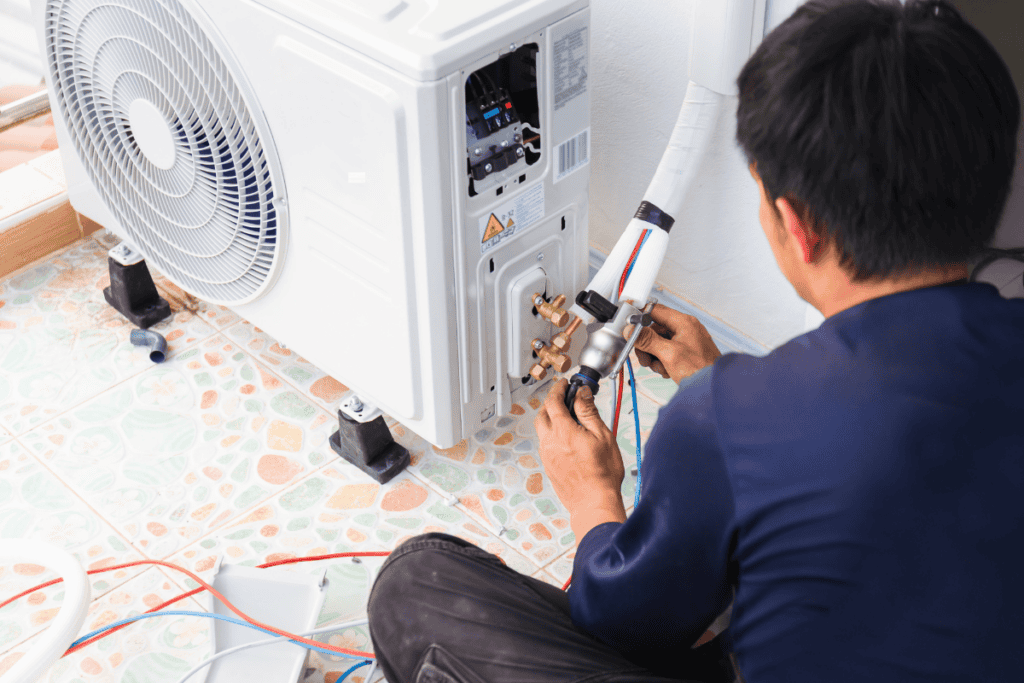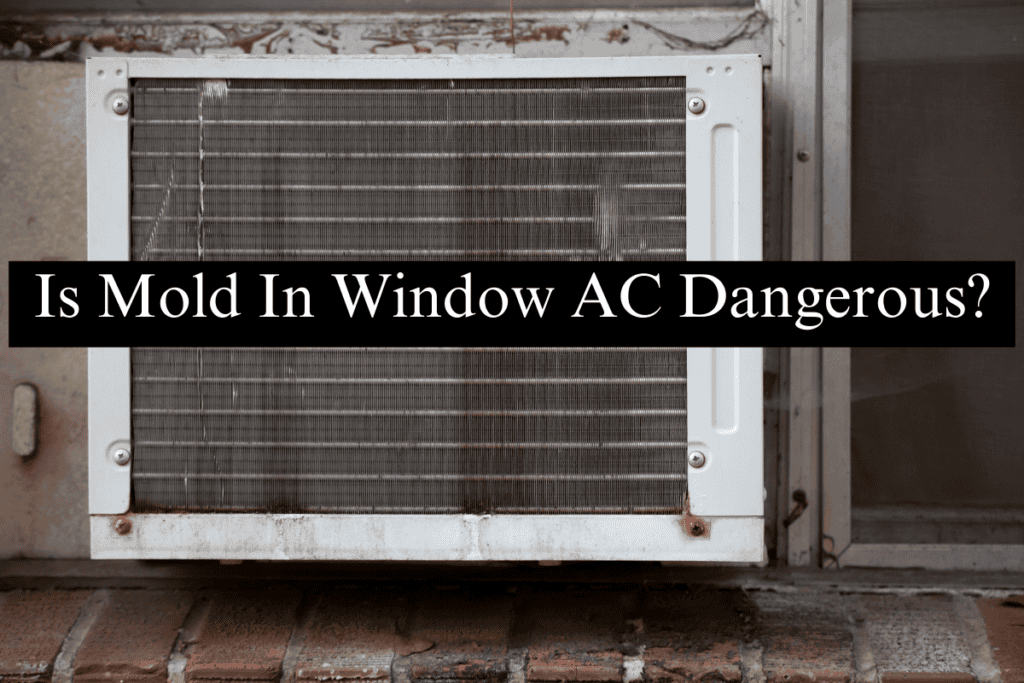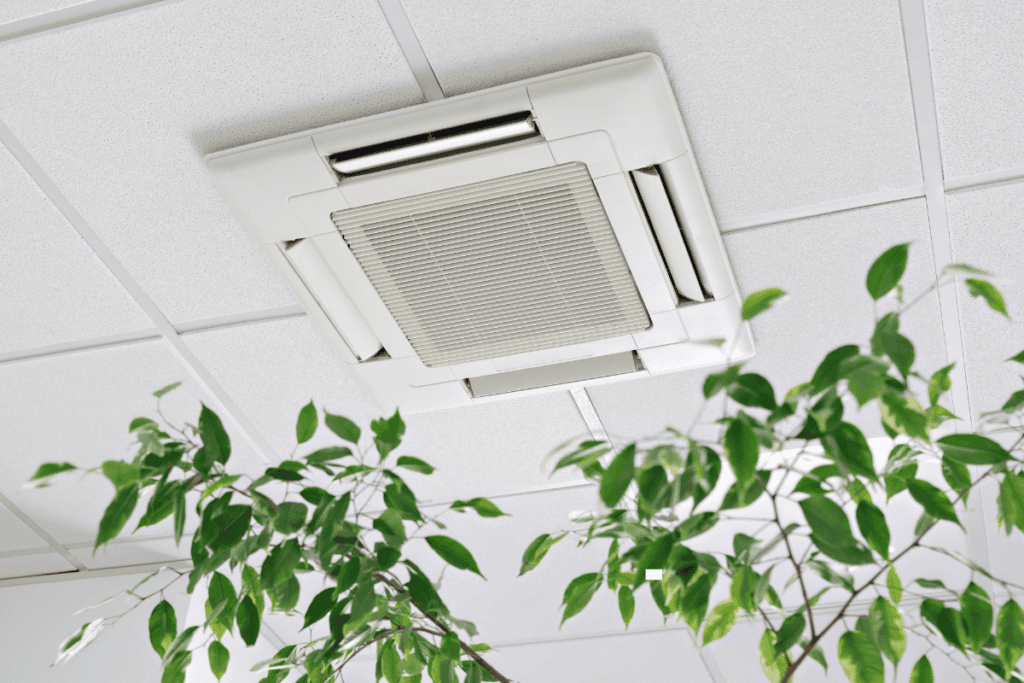Did you know that a study from Harvard University found that people living in regions with average daily temperatures above 75 degrees have been living longer than those in cooler areas? But what happens when you discover that your ac is blowing warm air instead of providing the cool relief you desperately need.
A malfunctioning AC unit can quickly turn your home into an uncomfortable place. If you find yourself in this situation, don’t sweat it!
In this article, we’ll explore 13 common reasons why your unit may be failing to cool your home effectively and provide you with practical solutions to troubleshoot and fix the issue.
Contents
- 1 Why is My Air Conditioner Blowing Hot Air?
- 1.1 1. Power Issues
- 1.2 2. Leaking or Low Refrigerant In Your Air Conditioner Unit
- 1.3 3. Dirty or Clogged Air Filter
- 1.4 4. Issue with Evaporator Coil
- 1.5 5. Unit’s Clogged Drain
- 1.6 6. Dirty AC Compressor
- 1.7 7. Blocked Registers Keep Your From Blowing Cold Air
- 1.8 8. Issue with Thermostat
- 1.9 9. Ice Buildup in AC
- 1.10 10. Leak in Air Ducts
- 1.11 11. Condensate Airflow Switch
- 1.12 12. Undersized Air Conditioner
- 1.13 13. Incorrect Thermostat Placement
- 2 How to Troubleshoot an AC Blowing Warm Air?
- 3 How Do I Prevent My AC From Blowing Warm Air In The Future?
- 4 Can’t Beat The Heat? Call HVAC Angel
- 5 Frequently Asked Questions
Why is My Air Conditioner Blowing Hot Air?
1. Power Issues
Inadequate power supply can be a cause of your ac giving out hot air. Your AC unit requires a stable power source to function properly. Make sure that your unit is receiving adequate power and that there are no tripped breakers or blown fuses causing the issue.
2. Leaking or Low Refrigerant In Your Air Conditioner Unit
Refrigerant is the lifeblood of your air conditioning system, allowing it to keep your home cool. If your AC is blowing hot air, it could be due to a refrigerant leak or low refrigerant levels. When recharging your unit, consider using a more eco-friendly refrigerant with a lower Global Warming Potential (GWP) to align with EPA guidelines.
3. Dirty or Clogged Air Filter
A dirty air filter can restrict airflow and cause your AC to blow hot air. The filter’s purpose is to trap dust, dirt, and other particles, preventing them from entering your HVAC system. Choose the right type of filter for your home for optimal performance and prevent your unit from struggling to provide comfort.
4. Issue with Evaporator Coil
The evaporator coil, located in the indoor unit of your air conditioning system, removes heat from the air inside your home. If the coil becomes dirty or covered in ice, it can’t effectively absorb heat, leading to your AC blowing warm air.
5. Unit’s Clogged Drain
As your unit keeps your home cool it also removes moisture from the air, which condenses and flows through the drain line, ensuring smooth air flow. If this line becomes clogged with dirt, algae, or debris, it can cause water to back up into the system.
6. Dirty AC Compressor
The compressor is the heart of your air conditioning system, responsible for compressing refrigerant and circulating it through the coils to cool your home. A dirty or malfunctioning compressor can lead to your AC blowing warm air instead of cold air.
According to Centers of Disease Control and Prevention, a poorly functioning unit may not effectively remove humidity from the air, creating an environment conducive to mold and mildew growth, which can be harmful to your health. When selecting a new compressor, opt for one with a high Seasonal Energy Efficiency Ratio (SEER) rating for optimal energy efficiency and performance.
7. Blocked Registers Keep Your From Blowing Cold Air
Registers are the openings in your walls, floors, or ceilings that allow conditioned air from your HVAC system to enter each room. If these registers become blocked by furniture, curtains, or debris, it can restrict airflow and cause your system to blow warm air.
8. Issue with Thermostat
Your thermostat is the control center of your air conditioning system, and a malfunctioning or improperly configured thermostat can cause your unit to stop emitting cold air.
Check that your thermostat is set to “cool” and that the temperature is set lower than the current indoor air temperature.
9. Ice Buildup in AC
If your unit is blowing warm air, it could be due to ice buildup on the evaporator coil. This can occur when there is insufficient airflow over the coil, often caused by a dirty filter, blocked registers, or a malfunctioning fan. As ice accumulates, it insulates the coil, preventing it from effectively absorbing heat from the air.
10. Leak in Air Ducts
Leaky air ducts can cause your unit to blow warm air by allowing conditioned air to escape before it reaches the intended rooms. When conditioned air escapes through these leaks, your system has to work harder to maintain the desired indoor air temperature.
11. Condensate Airflow Switch
A condensate airflow switch is a safety device that shuts off your system if the condensate drain line becomes clogged, preventing water from properly draining. A malfunctioning switch can falsely detect an issue and shut down your unit even when there’s no actual problem with the condensate drainage.
This can cause your unit to stop giving out cold air, leaving you with warm air instead.
12. Undersized Air Conditioner
If your air conditioning unit is too small for the space it needs to cool, it will struggle to maintain a comfortable temperature and may start blowing warm air. An undersized AC system will run continuously, trying to cool your home, but will fail to effectively remove heat and humidity.
13. Incorrect Thermostat Placement
The location of your thermostat is important in deciding how well your air conditioning system functions. If your thermostat is installed in a location that doesn’t accurately represent the temperature of your living space, such as near a window or in direct sunlight, it may cause your unit to give out hot air.
How to Troubleshoot an AC Blowing Warm Air?
If your air conditioner is releasing warm air instead of cool air, there are several components you should check first, as they are often the culprits behind this issue.
1. Check Your Thermostat Settings
Start by examining your thermostat settings. Check that it is set to “cool” mode and that the temperature is set lower than the current indoor air temperature. Consider switching to a smart thermostat, which can save 10-15 percent of your energy needs while improving comfort and convenience, according to Project Drawdown.
2. Check Your Breaker/Fuse Box
If your AC unit is not giving out cold air, check your breaker or fuse box to make sure that the circuit supplying power to your air conditioner has not tripped or blown. A tripped breaker or blown fuse can prevent your AC system from receiving the necessary power to operate correctly, leading to warm air blowing from your vents.
3. Dirty Filter Keeps Your Air Conditioner From Blowing Cold Air
A dirty air filter can restrict airflow, causing the air coming from your ac to be warm . The U.S. Department of Energy suggests cleaning or replacing your filter every month or two during seasons of peak use. A clean filter allows your home AC unit to properly cool the air of your home.
4. Seal leaks in the ductwork
Leaky ductwork can allow cool air to escape before it reaches your living spaces, resulting in your air conditioner blowing warm air. Inspect your ductwork for any leaks or gaps, and seal them using mastic sealant or metal tape.
5. Defrost evaporator coils
If your evaporator coils are frozen, your air conditioner may start giving out warm air. To fix this issue, turn off your AC unit and allow the coils to defrost. You can also check your air filter and ensure that there is proper airflow over the coils to prevent future freezing.
Once the coils have defrosted and any airflow issues have been addressed, your air conditioner should start blowing cold air again, resolving the issue of the ac unit blowing warm air.
If these solutions don’t resolve the problem of your AC blowing hot air, it’s time to investigate further and consider the other possible reasons mentioned earlier.
How Do I Prevent My AC From Blowing Warm Air In The Future?
1. Replace your air filter regularly
By replacing your filter every 1-3 months, depending on usage, you can ensure that your air conditioner has proper airflow and can efficiently cool your home.
The United States Department of Energy notes that simply replacing a dirty filter can improve your AC’s energy efficiency by 5-15%, saving you money on your energy bills.
2. Clean your evaporator coils every now and then
clean your evaporator coils every few months or as needed to maintain their ability to absorb heat from the air. You can do this yourself or hire a technician to perform a thorough cleaning.
3. Insulate your Air Ducts
By properly insulating your ductwork, you can prevent air leaks and ensure that the air produced by your system reaches its intended destination efficiently.
4. Set the thermostat at the correct location
Check that your thermostat is installed on an interior wall, away from heat sources and drafts to accurately gauge the indoor air temperature.
5. Clean the drain pipe regularly
To prevent your ac from giving out warm air, clean your drain pipe regularly to ensure proper water flow and maintain your AC system’s efficiency.
According to the International Mechanical Code (IMC), the diameter inside of your drain lines must be at least ¾ of an inch to ensure proper functionality and uninterrupted air flow.
6. Schedule regular maintenance
Routine Air Conditioning maintenance is important for keeping your system running smoothly and preventing issues like warm air blowing from your vents. Schedule annual or bi-annual maintenance with a qualified HVAC technician to ensure that your AC unit is operating at peak performance.
7. Regularly check refrigerant levels
If you suspect that your air conditioner is low on refrigerant, contact an HVAC technician to assess the situation and recharge the system if necessary. Regular refrigerant level checks can help prevent your air conditioner from giving out warm air and ensure that your home remains comfortable throughout the cooling season.
Can’t Beat The Heat? Call HVAC Angel
At HVAC Angel, our team of highly skilled and experienced HVAC technicians is here to help you beat the heat. We understand the frustration of an AC unit that’s not working properly, leaving you and your family feeling uncomfortable in your own home.
Whether your air conditioner is blowing hot air due to a dirty air filter, a malfunctioning compressor, or any other reason, we have the knowledge and tools to diagnose and fix the issue quickly and efficiently.
Choosing HVAC Angel for your air conditioning repair needs means choosing a company that puts your comfort and satisfaction first. Our technicians are dedicated to providing top-notch service, ensuring that your AC system is running smoothly and efficiently.
When you can’t beat the heat, call HVAC Angel for ac repair. Our friendly and professional team is here to help you get your AC system back on track, so you can stay cool and comfortable all summer long.
Frequently Asked Questions
1. Should I turn off the AC if it is blowing warm air?
Yes, if your air conditioner is releasing warm air, it’s best to turn it off and contact an HVAC technician to diagnose and fix the problem. Continuing to run your AC unit while it’s blowing hot air can lead to further damage and potentially more costly repairs.
2. Which AC mode to use in summer?
During the summer months, it’s recommended to use the “cool” mode on your thermostat. This setting will ensure that your air conditioner actively works to remove heat from your home and provide cool, comfortable air to your living spaces.
3. Should I keep my AC on auto or cool?
It’s generally better to keep your thermostat set to “auto” rather than “cool.” The “auto” setting allows your air conditioning system to regulate the temperature more efficiently by turning the fan on and off as needed.
4. How do I make my air conditioner colder?
To make your air conditioner produce cold air, start by checking and replacing your air filter regularly to ensure proper airflow. You can also try lowering your thermostat setting, ensuring that your outdoor unit is clean and unobstructed, and sealing any leaks in your ductwork to improve your AC system’s efficiency.
5. Can normal AC give hot air?
Yes, even a normally functioning air conditioner can sometimes give out warm air for various reasons, such as a dirty air filter, low refrigerant levels, or a malfunctioning compressor.


